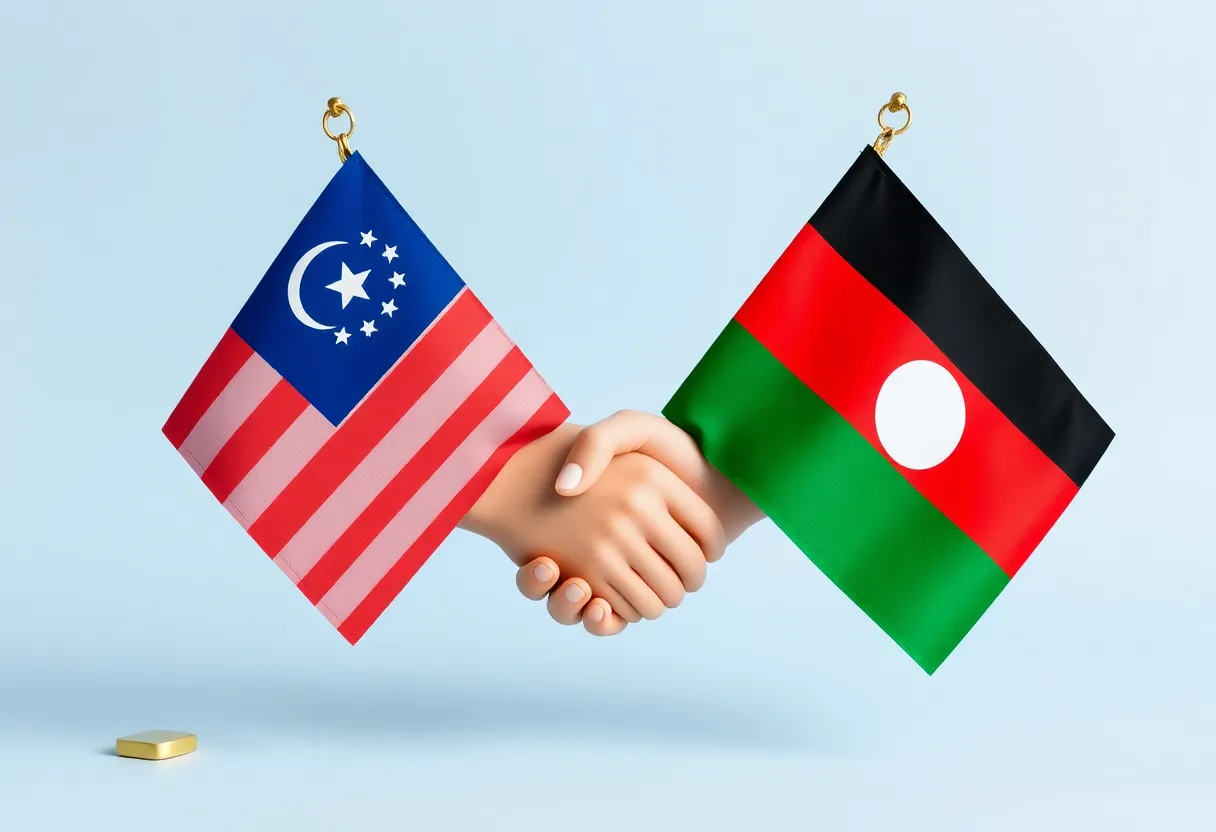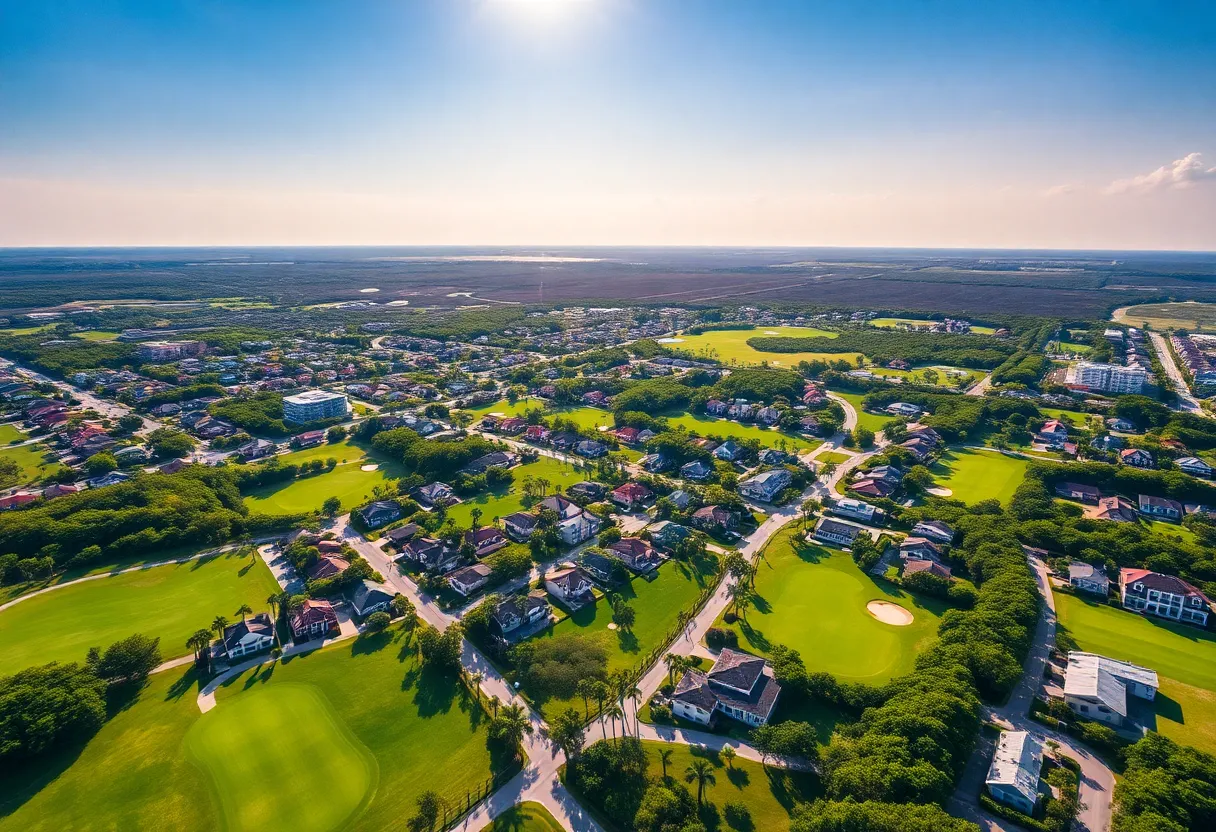News Summary
In a significant diplomatic agreement, the U.S. and Venezuela have reached a deal that allows deported Venezuelans imprisoned in El Salvador to return home. In exchange, ten American citizens and other political prisoners held in Venezuela will be released. This deal follows widespread criticism of the treatment of deported individuals and concerns surrounding the harsh conditions in Salvadoran prisons. The arrangement is viewed as an important step forward in U.S.-Venezuela relations amid ongoing political tensions.
U.S. and Venezuela Make Diplomatic Moves: A Deal Over Detained Citizens
In a surprising turn of events, the U.S. and Venezuela have struck a deal that could change the fates of many people caught in a complicated web of international relations. This diplomatic agreement comes after nearly 200 Venezuelan men were deported by the Trump administration to El Salvador, a move that sparked serious concerns about their safety and well-being. Many of these men were sent to a notorious prison recognized for its harsh conditions, leading to widespread criticism and fear.
What the Deal Entails
The recent deal allows Venezuelans who were deported from the U.S. and were imprisoned in El Salvador to return home. In exchange for this favor, ten American citizens and some other political prisoners held in Venezuela will be released. This arrangement has been touted as a significant step forward after months of negotiations, which had been ongoing since at least May. It’s being framed as a sort of rescue mission for those trapped in a political quagmire.
Venezuelans and Deportations
Most of the men who found themselves in this situation were accused of having ties to a gang called Tren de Aragua. However, many critics point out that there isn’t enough evidence to support these claims. Some observers argue that these deportations were unjust, with individuals being targeted based on superficial factors like tattoos or clothing rather than any real criminal activity. In fact, multiple human rights organizations have raised alarms over the way these deported individuals are treated in the maximum-security prisons of El Salvador.
The Reality of El Salvador’s Prisons
One such facility, the Terrorism Confinement Center (CECOT), is infamous for its overcrowded conditions, holding up to 40,000 inmates in a space that doesn’t allow for adequate healthcare or human interaction. These harsh realities have made deportees nervous about their fate in El Salvador, as reports of human rights abuses continue to surface.
Political Implications and Negotiation Efforts
The diplomatic breakthrough and the release of detainees is seen as a political victory for Venezuela’s President, Nicolás Maduro. It adds another layer to the intricate dance between U.S. foreign policy and Venezuela’s ongoing governance crisis. Even amidst these gains for Venezuelan political prisoners, the U.S. government remains steadfast in denying the legitimacy of Maduro’s presidency, complicating the situation further.
Broader Implications of Deportations
Some experts have raised eyebrows over the ethics of deporting individuals to countries where they have no real ties or protection. In previous cases, the U.S. government invoked the Alien Enemies Act to expedite deportations for those deemed threats, particularly individuals viewed as gang members. However, evidence suggests some of those deported may have no criminal records, raising concerns about fairness and human rights.
Future Considerations
The deal itself is part of a larger conversation bolstered by human rights advocates and legal experts who insist on the need for clarity and fairness in deportation policies. The American Civil Liberties Union (ACLU) has filed lawsuits related to these deportations, demanding a better understanding of what the future holds for deported individuals.
Now, as both nations work through the outcomes of this complex agreement, the questions are abundant. How many U.S. citizens or lawful residents remain imprisoned in Venezuela? What does this mean for future deportations and exchanges? And, most crucially, what will become of those who are caught in such harrowing situations?
As this story continues to unfold, we can only hope it leads to lasting changes for those affected and a more humane approach to international deportations moving forward. Whatever the case may be, these developments shed light on the often hidden struggles of human lives in the midst of high-stakes geopolitics.
Deeper Dive: News & Info About This Topic
- Al Jazeera
- Los Angeles Times
- Associated Press
- New York Times
- ABC 7 Chicago
- Wikipedia: Deportation
- Google Search: Venezuelan Deportations
- Google Scholar: Venezuela Deportation Human Rights
- Encyclopedia Britannica: Deportation
- Google News: Venezuela Prisoner Swap

Author: STAFF HERE ORLANDO WRITER
ORLANDO STAFF WRITER The ORLANDO STAFF WRITER represents the experienced team at HEREOrlando.com, your go-to source for actionable local news and information in Orlando, Orange County, and beyond. Specializing in "news you can use," we cover essential topics like product reviews for personal and business needs, local business directories, politics, real estate trends, neighborhood insights, and state news affecting the area—with deep expertise drawn from years of dedicated reporting and strong community input, including local press releases and business updates. We deliver top reporting on high-value events such as Orlando International Fringe Theatre Festival, Megacon Orlando, and Central Florida Fair. Our coverage extends to key organizations like the Orlando Economic Partnership and Hispanic Chamber of Commerce Metro Orlando, plus leading businesses in leisure and hospitality that power the local economy such as Walt Disney World Resort, AdventHealth, and Universal Orlando. As part of the broader HERE network, including HEREJacksonville.com, HEREPetersburg.com, HERETallahassee.com, and HERETampa.com, we provide comprehensive, credible insights into Florida's dynamic landscape.




